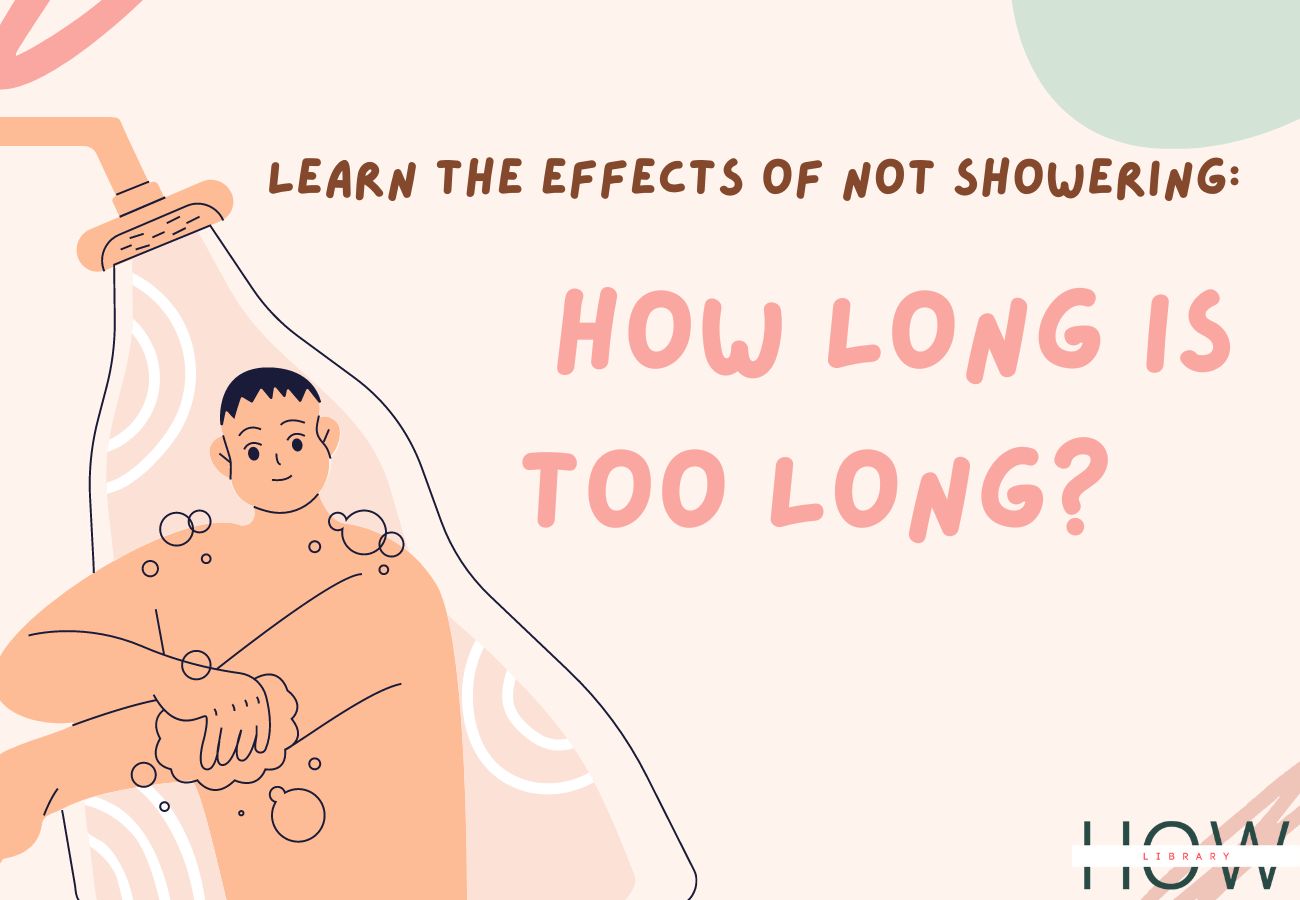The concept of cleanliness has varied greatly throughout history and across cultures. Some people swear by a daily shower, while others find it perfectly acceptable to wait a week or more between thorough scrubs. This raises an intriguing question: how long can you go without showering before you die?
First, it’s essential to state unequivocally that there’s no recorded case of death resulting directly from a lack of showering. However, a lack of personal hygiene can lead to various health risks, skin issues, and negative impacts on mental health. Let’s delve deeper into the world of personal hygiene and the importance of regular showering.
Health Risks and Effects of Not Showering
A prolonged lack of hygiene can indeed lead to severe consequences. Not showering regularly leads to the buildup of sweat, oils, and dirt on the skin. This can result in skin issues such as acne, rashes, and dermatitis. Even more seriously, lack of hygiene can lead to skin diseases, infections, and parasitic infestations like scabies.
There’s a clear correlation between personal hygiene and overall health, so it’s vital to know how often to shower. Dermatologists typically recommend that an average person should shower once a day. However, your showering frequency could vary depending on factors such as your physical activity levels, climate, and personal preference.
Showering and Mental Health
Did you know there’s a connection between showering and mental health? Mental health professionals have observed that a regular showering routine can help manage stress, anxiety, and depression. Additionally, the psychological effects of not bathing can include a drop in self-esteem, increased self-consciousness, and social anxiety.
Cultural Showering Habits
Showering habits are significantly influenced by societal norms and cultural practices. In some societies, a daily shower is the standard, while in others, bathing rituals may take place less frequently. What’s constant across cultures is the recognition of the importance of personal hygiene.
Understanding the societal norms for hygiene, along with professional advice on showering frequency, can provide insight into the universal human experience.
Showering: A Critical Part of a Skin Care Routine
Dermatologists stress the importance of including showering in your skin care routine. Regular cleansing helps maintain a healthy balance of skin microbes, preventing harmful bacteria from causing disease. However, they caution against overdoing it, as excessive showering can strip the skin of essential oils, leading to dryness and irritation.
In conclusion, while you won’t die from not showering, the long-term effects of not bathing can impact your health, skin, and psychological wellbeing. As with many things in life, balance is key. Now that you’ve discovered the importance of personal hygiene, it’s time to assess your showering habits and make necessary adjustments for a healthier, happier you!
Creating a Healthy Showering Routine
Understanding the importance of personal hygiene is the first step towards making a positive change in your life. Now, let’s talk about creating a practical and beneficial showering routine that suits your lifestyle and skin type.
How Often Should You Shower?
The frequency of showering can depend on many factors. Your personal activities, climate, and skin type all play crucial roles. If you live in a hot, humid climate or engage in regular physical activities that cause you to sweat, daily showers might be necessary. For people living in cooler climates or having dry skin, showering every other day might be more beneficial to prevent skin from drying out.
Use the Right Products
Choosing the right products for your shower routine is just as important as the act of showering itself. Opt for mild, pH-balanced cleansers that won’t strip your skin of its natural oils. If you have specific skin concerns, like acne or eczema, consider using medicated products or those recommended by a dermatologist.
Don’t Rush
Take your time in the shower. Use this opportunity to relax, unwind, and take care of your body. Pay attention to every part of your body, especially the often neglected areas like the feet, back, and behind the ears.
Post-Shower Care
After showering, always pat your skin dry instead of rubbing it. Apply a good quality moisturizer immediately to lock in the moisture and keep your skin hydrated. Remember to take care of your hair as well. Use conditioner after shampoo and consider deep conditioning treatments if your hair is particularly dry or damaged.
Conclusion
Not showering won’t directly lead to death, but a lack of personal hygiene can cause numerous physical and psychological issues. However, armed with the knowledge you’ve gained, you can create a showering routine that helps you maintain your health, boosts your mental wellbeing, and enhances your life quality. After all, personal hygiene is an essential part of self-care and respect for our bodies. So, embrace your showering routine and let it be a stepping stone towards better health and happiness.
Frequently Asked Questions
How often should an average person shower?
The frequency of showering can vary depending on several factors including climate, personal activities, and skin type. For individuals living in hot, humid climates or engaging in strenuous activities that cause sweating, daily showers might be necessary. However, for those in cooler climates or with dry skin, showering every other day could be more suitable to avoid skin dryness.
What happens if you don’t shower for a month?
A prolonged lack of showering leads to a buildup of sweat, oils, and dirt on the skin, which can result in skin problems like acne, rashes, and dermatitis. More seriously, it can lead to skin infections and parasitic infestations like scabies. There might also be psychological effects like decreased self-esteem and social anxiety.
What are the health risks associated with not showering?
Not showering regularly can lead to various health risks. These include skin issues like acne, rashes, and dermatitis; infections and infestations; and even mental health problems like increased stress and anxiety levels.
How can not showering affect your skin?
When you don’t shower regularly, sweat, oils, and dirt build up on the skin, potentially causing issues like acne, rashes, and dermatitis. In more serious cases, a lack of hygiene can lead to skin infections and parasitic infestations.
Does lack of personal hygiene lead to diseases?
Yes, a lack of personal hygiene can contribute to the development of certain diseases. These can include skin infections, parasitic infestations, and other illnesses linked to the buildup of harmful bacteria and parasites.
How does showering affect mental health?
Regular showering has been linked to improved mental health. The act of cleansing can be therapeutic, reducing stress and anxiety. A regular shower routine can also bolster self-esteem and social confidence.
Can you die from not showering?
While there are no recorded instances of death directly resulting from not showering, a lack of personal hygiene can lead to various health complications. However, it’s important to note that these complications typically stem from the severe neglect of personal hygiene over an extended period.

